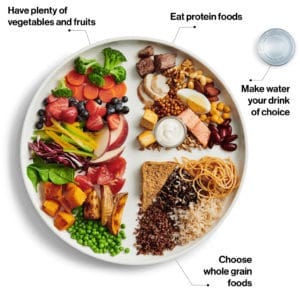Healthy Eating for Life
Information on topics on healthy eating across the lifespan can be found below.
Healthy eating is an important part of leading a healthy lifestyle, regardless of age.
Healthy eating ensures your body gets all the nutrients it needs. It also helps reduce your risk of developing chronic diseases, such as type 2 diabetes, heart disease, and cancer.
It’s recommended to have a healthy pattern of eating most of the time.
Healthy eating doesn’t mean you have to give up your favourite foods, but try to choose healthier options more often. The pattern of eating over longer periods of time is more important than any one meal or food.
Follow the healthy eating recommendations from Canada’s Food Guide into your everyday diet to ensure it’s a healthy one.
Visit Canada’s Food Guide for more information on healthy eating, recipes, resources and more.
As of January 1, 2017, some food service establishments must provide information about calories for all standard menu items. You can use the information to make informed choices when eating out.
Where can calorie information be found?
- on menus (such as menus that are printed or electronic, buffet signs, display tags, and drive-thru signage)
Which establishments must provide calorie information?
- restaurants, movie theatres, convenience stores, and grocery stores that have 20 or more locations in Ontario
Which menu items must include calorie information?
- standard menu items such as food, beverages, and alcoholic drinks, and their different flavours
- condiments, sauces, dressings, and flavourings that can be added to each menu item
- exception: seasonal menu items
Making healthy food choices
The menus will also list the recommended daily amount of calories for adults. This amount is only a general guide – individual needs can vary.
Focus on quality when you make food choices. Some foods that are nutritious could be higher in calories, and that is ok. For example,
- A spinach salad with chicken and nuts could have 700 calories, but a cheeseburger and fries could have 550 calories. The salad has more nutritional value.
- Plain milk (2% M.F.) has 130 calories per cup as well as calcium, vitamin D, and protein. Milk is much more nutritious than diet pop, which has 0 calories.
It’s the law
The Healthy Menu Choices Act (Government of Ontario) sets the rules for food service premises to have calories on their menus.
General information about the Act (Ministry of Health and Long-Term Care)

